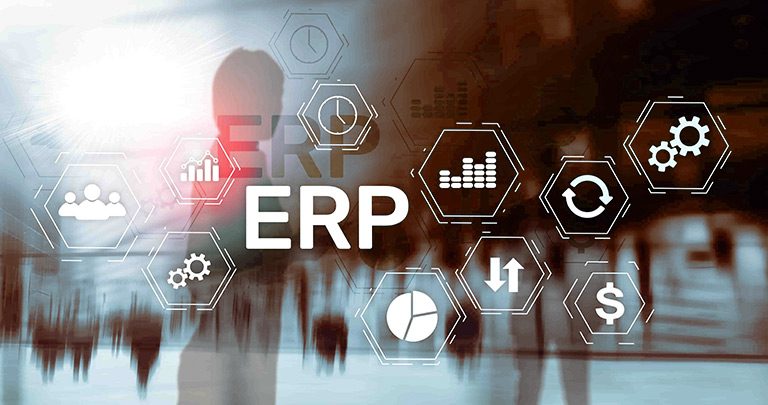In today’s digital age, the decision to implement enterprise software solutions is one of the most critical choices a business leader can make. Whether you’re leading a small startup or a well-established enterprise, the right software solutions can streamline operations, increase productivity, and improve customer satisfaction. As business environments grow more complex, companies are turning to tailored, efficient software to manage their operations. This comprehensive guide will help you understand what enterprise software solutions are, why they are essential, the different types available, and how to choose the right one for your business needs.
Understanding Enterprise Software Solutions
Enterprise software solutions are specifically designed to manage and streamline a company’s core business processes, enabling them to function more efficiently. These software solutions are distinct from consumer software because they focus on addressing the specific needs of a business. They handle various internal business functions such as finance, human resources, customer relationship management (CRM), supply chain management, and enterprise resource planning (ERP).
What sets enterprise software apart is its ability to integrate various business functions into one unified system, allowing businesses to make data-driven decisions, optimize workflows, and reduce human error.
The importance of enterprise software cannot be overstated. Businesses that rely on manual processes or outdated software risk losing valuable time, resources, and revenue opportunities. The right enterprise software solution can transform your business by improving data access, reducing operational costs, and increasing overall productivity.
The Role of Enterprise Software in Business Success
1. Streamlined Operations
One of the most compelling reasons to invest in enterprise software solutions is the significant improvement in operational efficiency. With multiple integrated tools, businesses can streamline various processes, automate repetitive tasks, and reduce errors. For instance, automating payroll through human resources software reduces the need for manual data entry, minimizing human error and time spent on administrative tasks.
By automating key operations such as inventory management, order processing, or financial reporting, business leaders can ensure that the company runs smoothly with minimal manual intervention. This improves workflow and ensures better decision-making, as employees can focus on strategic tasks rather than routine administrative work.
2. Enhanced Decision Making with Real-Time Data
Enterprise software solutions provide real-time data that enable managers and business leaders to make better decisions. A well-implemented enterprise resource planning (ERP) or business intelligence (BI) system can consolidate business data from various departments and present it in a usable format.
Managers can use this data to make informed decisions on inventory management, sales strategies, employee performance, and customer engagement. Additionally, some enterprise software comes with advanced analytics and forecasting tools, which can help predict trends, customer demands, and market shifts.
3. Scalability for Future Growth
As businesses grow, their software needs tend to evolve. The best enterprise software solutions are scalable, allowing them to grow with your business. Whether your company is expanding into new markets, hiring more employees, or increasing its product offerings, scalable software can accommodate these changes. Many modern enterprise software solutions are cloud-based, allowing for easier expansion and updates without needing to invest in costly infrastructure upgrades.
Scalability is especially important for growing companies that anticipate future changes. Enterprise software systems like ERP and CRM allow you to add more users, manage additional locations, or support larger volumes of data and transactions as your business scales.
4. Enhanced Collaboration Across Departments
Enterprise software solutions foster better collaboration among departments within a business. By providing a centralized platform for managing data and processes, these solutions ensure that different teams—sales, marketing, customer service, human resources, and finance—can work together more efficiently. Data silos are minimized, and all departments have access to the same information, which leads to better coordination and quicker decision-making.
For example, sales teams can have immediate access to customer data, including previous interactions, preferences, and feedback, enabling them to provide personalized service. Similarly, the finance department can access real-time financial data to make budgetary decisions or forecasts. This seamless integration of information fosters greater collaboration and ensures that all departments are aligned with the company’s goals.
5. Improved Customer Service

A key component of any successful business is maintaining strong relationships with customers. Enterprise software solutions can enhance customer service by providing teams with tools to track customer interactions, manage service requests, and predict customer needs.
CRM software, for example, allows customer support teams to have a 360-degree view of a customer’s history with the business, including their preferences, past purchases, and previous support requests. With this information, customer service representatives can offer tailored solutions, improving customer satisfaction and retention.
Moreover, many CRM systems come with automation tools that allow businesses to proactively reach out to customers for follow-ups, promotional offers, or support requests, reducing the chances of missed opportunities.
6. Enhanced Security and Compliance
In today’s data-driven world, protecting sensitive company data is essential. Enterprise software solutions are designed to enhance security, providing businesses with advanced encryption methods, secure authentication processes, and data backup capabilities. These systems also ensure compliance with various industry regulations and standards, including GDPR, HIPAA, and others.
For instance, ERP and CRM systems help manage data access permissions and maintain audit trails of who accessed certain data and when. This is essential in case of a security breach or an internal audit, as it helps maintain transparency and accountability.
By implementing enterprise software, businesses can ensure that they meet legal and regulatory standards, reducing the risk of penalties and fines.
Types of Enterprise Software Solutions
There are several types of enterprise software solutions available, each designed to address specific business functions. Below are some of the most common types that businesses use today.
1. Enterprise Resource Planning (ERP) Software
ERP software is one of the most widely used types of enterprise software. It integrates a company’s key business processes, such as accounting, supply chain management, procurement, and inventory management, into one centralized system. Popular ERP solutions include SAP, Oracle, Microsoft Dynamics 365, and NetSuite.
By centralizing data and automating core processes, ERP software helps businesses improve operational efficiency, reduce redundancy, and enhance decision-making. ERP software allows businesses to track inventory, manage financials, streamline production, and even forecast future demand.
2. Customer Relationship Management (CRM) Software
CRM software is designed to manage and analyze customer interactions and data throughout the customer lifecycle. It helps businesses build stronger relationships with customers by providing valuable insights into customer behavior, preferences, and purchase history. CRM tools such as Salesforce, HubSpot, Zoho, and Microsoft Dynamics 365 help sales teams manage leads, track sales opportunities, and improve customer satisfaction.
A well-integrated CRM system enables companies to nurture customer relationships, track service requests, and deliver personalized marketing campaigns. It plays a critical role in ensuring customer loyalty and retention.
3. Supply Chain Management (SCM) Software
Supply chain management software helps businesses manage and optimize their supply chains. These solutions enable companies to track the flow of goods, manage inventory, plan production schedules, and coordinate logistics. SCM software tools like SAP Integrated Business Planning, Oracle SCM Cloud, and Kinaxis RapidResponse offer real-time tracking of inventory, sales orders, and shipments, ensuring that businesses can respond quickly to supply chain disruptions or customer demands.
SCM software also helps companies forecast demand, optimize procurement, and reduce operational costs by improving supplier relationships and streamlining distribution channels.
4. Human Resource Management (HRM) Software
HRM software is used to manage employee data, payroll, benefits, performance, and recruitment. HRM solutions like Workday, BambooHR, and ADP Workforce Now help businesses automate HR processes, reduce paperwork, and ensure compliance with labor laws. These systems centralize employee records, streamline recruitment, and enable performance tracking.
By implementing HRM software, businesses can improve employee engagement, reduce HR administrative costs, and foster a more efficient workforce. These solutions also help HR departments maintain compliance with labor laws and track employee performance to identify training needs or retention strategies.
5. Business Intelligence (BI) Software
BI software helps businesses analyze and visualize data to make informed decisions. Tools like Microsoft Power BI, Tableau, and Qlik Sense aggregate data from multiple sources, enabling businesses to create reports, dashboards, and predictive models that support decision-making.
BI software provides valuable insights into business performance, customer behavior, and operational efficiency. By using BI tools, businesses can uncover trends, track key performance indicators (KPIs), and identify areas for improvement.
Factors to Consider When Choosing Enterprise Software Solutions
Selecting the right enterprise software is a crucial decision that requires careful evaluation. Here are the factors to consider when choosing the best enterprise software solution for your business:
1. Business Needs Assessment
Before choosing any software, it is essential to conduct a comprehensive assessment of your business needs. Identify the specific processes that need automation or improvement. Do you need software for inventory management, customer relationship management, or accounting? Understanding your business’s pain points will help you select a solution that addresses your specific requirements.
2. Integration with Existing Systems
Many businesses already use multiple software tools for different functions. When choosing enterprise software, make sure it integrates seamlessly with your existing systems. The ability to integrate with tools such as payroll systems, CRM software, and financial software can prevent operational disruption during the implementation phase.
3. Scalability and Flexibility
As your business grows, your software needs may change. Choose software that can scale with your business, whether by adding new users, locations, or features. Cloud-based solutions are particularly beneficial because they allow for easy expansion without the need for substantial hardware upgrades.
4. User-Friendliness and Training
The user experience of the software is critical to its success. If the system is difficult to use, it will hinder employee productivity and result in low adoption rates. Look for software with an intuitive interface and ensure that adequate training is provided for employees. Training is essential to ensure that your team can fully leverage the software’s features.
5. Vendor Reputation and Support
When selecting enterprise software, choose a vendor with a strong reputation for reliability and customer support. The vendor should offer adequate technical support, regular software updates, and a clear roadmap for future development. The level of support you receive can have a significant impact on your ability to successfully implement the software.
6. Cost Considerations
Cost is always an important factor when choosing enterprise software. While it’s tempting to select the cheapest option, it’s crucial to consider the value the software provides in terms of productivity, efficiency, and long-term benefits. Look at the total cost of ownership, including licensing fees, implementation costs, and maintenance charges.
Implementing Enterprise Software Solutions
Once you’ve selected the right enterprise software, the next challenge is implementation. This process can be complex, as it involves data migration, system integration, and employee training. Here’s how to ensure a successful implementation:
1. Data Migration
Migrating your business data from legacy systems to the new enterprise software is a critical step. It’s essential to ensure that data is transferred accurately and securely. During the migration process, test the software thoroughly to ensure that all data is correctly imported and that the new system functions as expected.
2. Integration with Existing Systems
As mentioned earlier, enterprise software must integrate with your existing systems. This may involve integrating with other third-party applications or tools. Ensure that you allocate resources to manage integration effectively and that all systems work together without issues.
3. Training Employees
Even the best software will not be effective if employees are not properly trained. Provide comprehensive training for all users, ensuring they understand how to use the software effectively. Many vendors offer training sessions or online resources, so take advantage of these offerings.
4. Ongoing Support and Maintenance
After the software has been implemented, ongoing support and maintenance are essential for ensuring that it continues to meet your business needs. Establish a relationship with the software provider to ensure timely updates, bug fixes, and new features. Regularly review the system’s performance and seek feedback from employees to identify areas for improvement.
The right enterprise software solution
Choosing the right enterprise software solution is one of the most impactful decisions a business can make. The right software not only improves operational efficiency and productivity but also enhances collaboration, decision-making, and customer service. By carefully evaluating your business needs, considering integration and scalability, and selecting a trusted vendor, you can choose the software that will support your business’s long-term growth and success.
With the right enterprise software in place, your business will be better equipped to navigate the complexities of today’s market and thrive in the competitive business environment.

